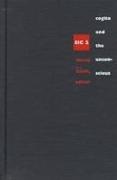Read more
The Cartesian cogito - the principle articulated by Descartes that "I think, therefore I am" - is often hailed as the precursor of modern science. At the same time, the cogito's agent, the ego, is sometimes feared as the agency of manipulative domination responsible for all present woes, from patriarchal oppression to ecological catastrophes. Cogito and the Unconscious explores the vicissitudes of the cogito and shows that psychoanalyses can render visible a constitutive madness within modern philosophy, the point at which "I think, therefore I am" becomes obsessional neurosis characterized by "If I stop thinking, I will cease to exist".
List of contents
Introduction: Cogito as Shibboleth 1
Part I. Cogito as a Freudian Concept
1. Cogito as the Subject of the Unconscious / Mladen Dolar 11
2. The Subject of the Law / Alenka Zupan¿i¿ 41
3. Four Discourses, Four Subjects / Slavoj Žižek 74
Part II. Cogito's Body
4. The Case of Polyphemus, or, a Monster and Its Mother / Alain Grosrichard 117
5. Malebranche's Occasionalism, or, Philosophy in the Garden of Eden / Miran Božovi¿ 149
6. The Silence of the Feminine Jouissance / Renata Salecl 175
Part III.
7. A Sovereign's Anatomy: The Antique in Bataille's Modernity and Its Impact on His Political Thought / Marc de Kessel 199
8. Negation and Its Reliabilities: An Empty Subject for Ideology? / Robert Pfaller 225
9. The Cartesian Subject versus the Cartesian Theater / Slavoj Žižek 247
Notes on Contributors 275
Index 277
About the author
Slavoj Žižek, ed.
Summary
Without psychoanalysing philosophy, this title explores the vicissitudes of the cogito and shows that psychoanalyses can render visible a constitutive madness within modern philosophy, the point at which "I think, therefore I am" becomes obsessional neurosis characterised by "If I stop thinking, I will cease to exist."

